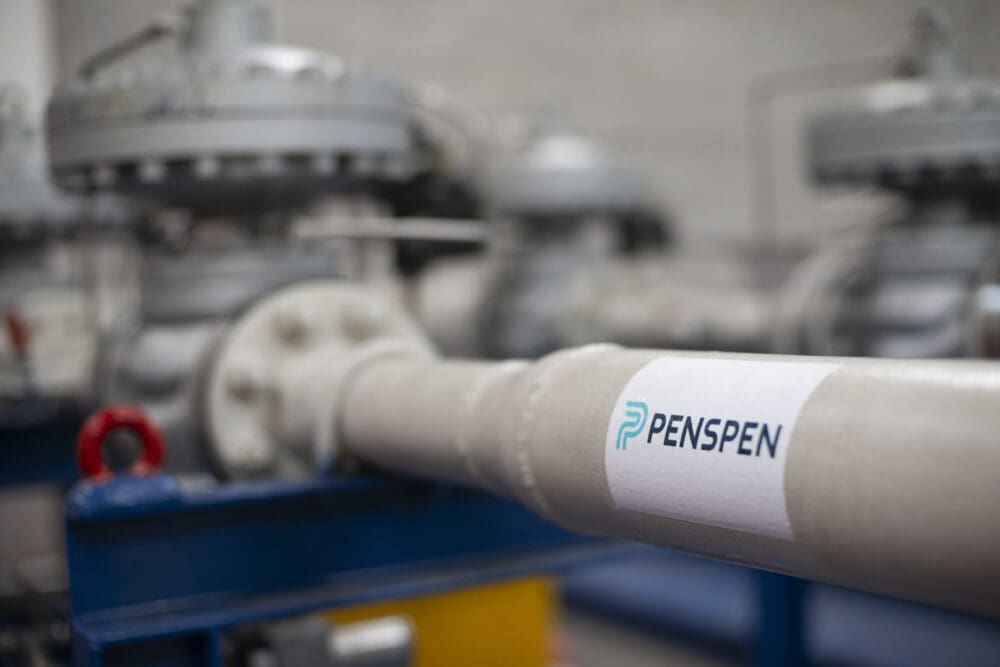Maintenance is often viewed as a costly necessity, yet it is fundamental to ensuring that assets and systems continue to deliver their intended functions safely, reliably, and efficiently.
In a preview of his upcoming ‘Get the Scoop’ presentation at Penspen’s stand at ADIPEC 2025, Gordon Philip, Director of Asset Integrity – Middle East & Africa at Penspen, explores how Reliability Centred Maintenance (RCM) provides a structured approach to identifying functions, failure modes, and their consequences, offering targeted interventions that preserve asset performance and minimise costly downtime.
Gordon started his career as a Marine Engineer in the Royal Navy, and brings over 37 years’ experience in engineering and management across various industrial sectors. A member of the Institute of Mechanical Engineers’ Safety and Reliability Group, he offers expert perspectives on effective integrity and maintenance strategies for complex energy infrastructure.
With relatively few exceptions, wherever engineering goes maintenance is sure to follow.
Inevitably, however, so is equipment and/or asset failure – together with the accompanying consequences of the failure. For redundant systems and equipment, the ability to maintain the desired level of functionality is achieved by the inclusion of duplicate or multiple components so that in the event of a Functional Failure (FF) there is an alternative means of providing the primary or secondary functions.
The same situation however does not pertain to the many standalone assets and systems operated within industries whereby there is no redundancy. Moreover, little or no guidance exists, with end users solely reliant on the maintenance recommendations of the Original Equipment Manufacturer (OEM), modified as necessary to meet statutory and regulatory requirements. With the OEM unaware of how the end user operates these assets and systems, there can be serious consequences in the event of a single Failure Mode (FM) occurring.
Maintenance: Cost Burden or Strategic Investment?
All operators count on their physical assets to continue doing what they’re intended to do, in their present operating context. But with maintenance accounting for a significant proportion of overall operating budgets, there is a general inherent view that it is regarded as a monetary burden. When balancing the risks of failure – safety implications, downtime, cost, and reputation – maintenance must be viewed as an investment; a direct cost that organisations should be ready and willing to bear with the expectation that they will receive a benefit ensuring safety compliance, operability, and asset and wider system reliability that far outweighs the magnitude of any investment.
For integrity professionals, the end goal of any maintenance programme is preservation of function, ensuring that assets continue to perform to the end users’ satisfaction. An objective maintenance strategy requires detailed understanding of expected terms of performance, and future deterioration of any asset or system. With comprehensive data, understanding of composition, operating conditions and environmental factors, deterioration and accompanying consequences can be managed and, with suitable intervention; reversed. This is the essence of Reliability Centred Maintenance (RCM).
The Role of Reliability Centred Maintenance (RCM)
RCM identifies the functions, the functional failures, the failure modes of critical infrastructure, and what can be done to predict such failure modes. RCM also takes account of what happens when things fail and tailors maintenance requirements depending on the consequences of failure.
The underlying goal of targeted maintenance is therefore to protect your core operations and minimise costly operational downtime.
Building Reliability Into the Future
At ADIPEC 2025, I’ll be delving into why organisations should embrace RCM, and key factors in RCM implementation, including:
- Operating Context
- Functions
- Physics of Failure
- Functional Failure: Hidden/Safety/Environmental/Operational
- Failure Effects
- Managing the Consequences of Failure
Book a meeting with me at the show using the button below:
Book a MeetingRelated Insights
Curiosity, Commitment, and Corrosion: Our People – Yureis Villasmil
Passionate about personal development, integrity engineer Yureis shares how her her work contributes to the safe and sustainable delivery of energy throughout Latin America. ...

Development and Implementation of Asset Integrity Management Systems
In the case of facilities, integrity management is somewhat more complex than for pipelines, due to the nature and complexity of these types of assets, which distinguish them from a main...

Pipeline Performance vs Dust
In the latest integrity issue of World Pipelines, Penspen Asset Integrity experts explore how dust impacts the integrity, reliability, and safety of gas transmission and distribution systems, and...

A New Landscape: Our People – Nick Molnar
Nick is a Senior Pipeline Integrity Engineer at Penspen. Since joining the team in November 2024 and relocating from Canada to Abu Dhabi, he’s been an integral part of Penspen’s Centre of...




